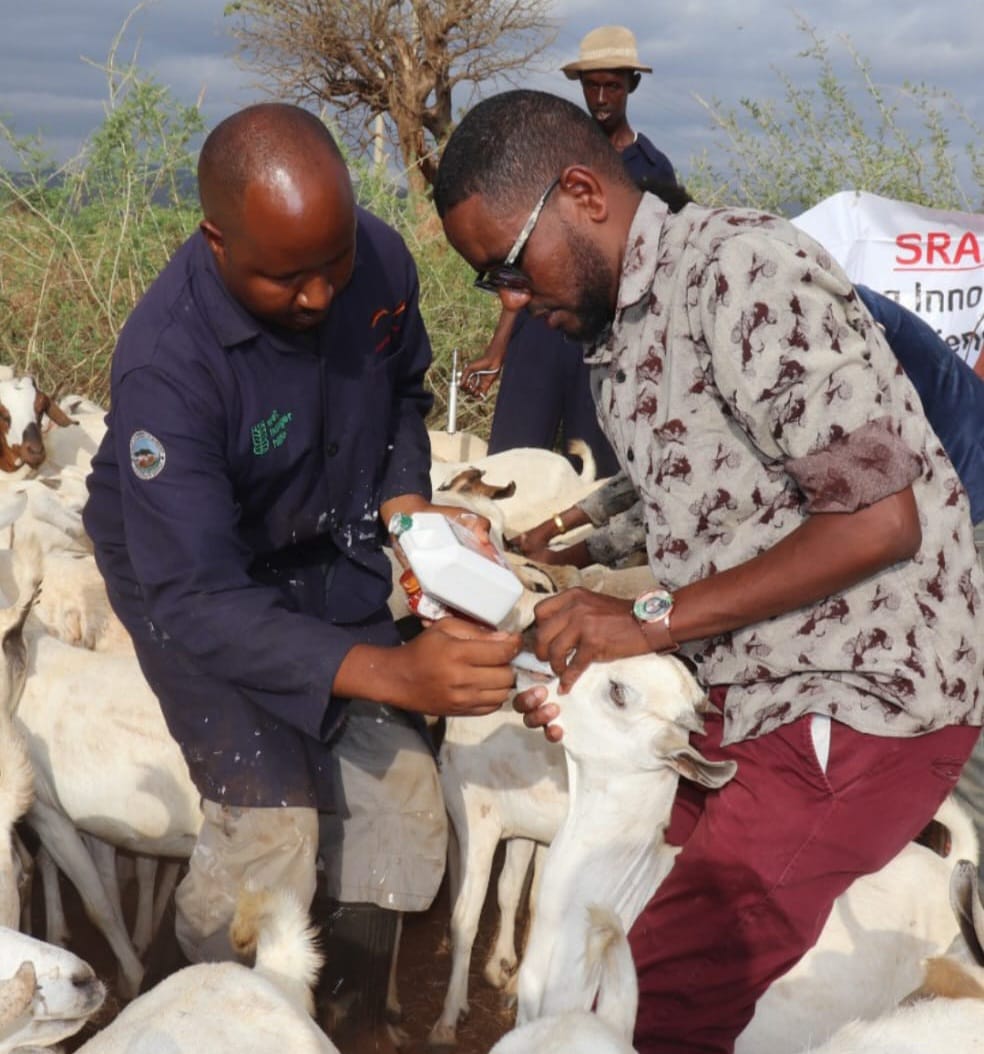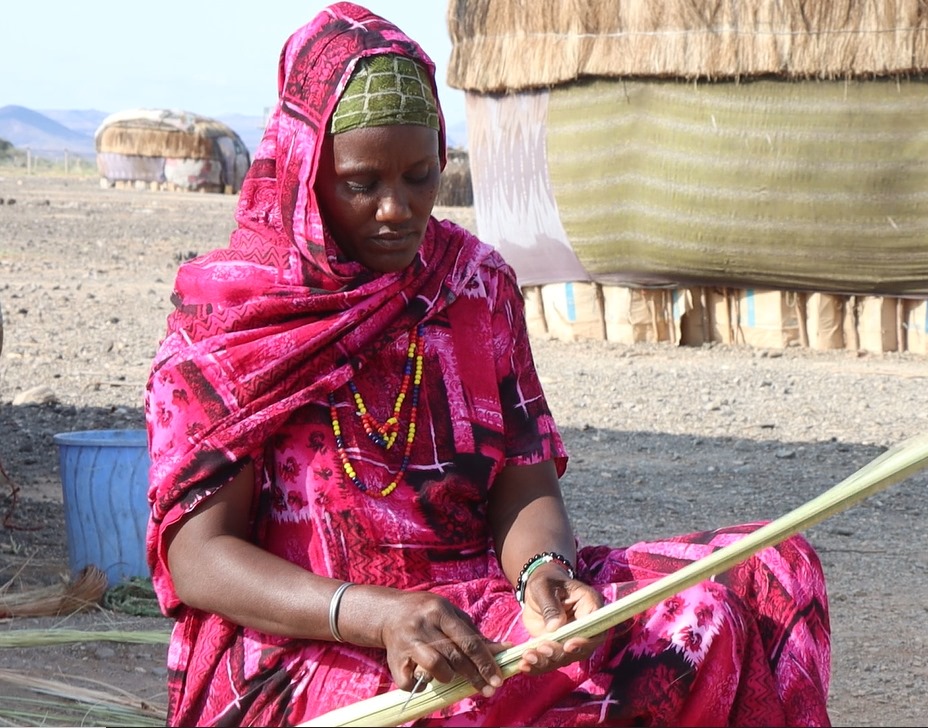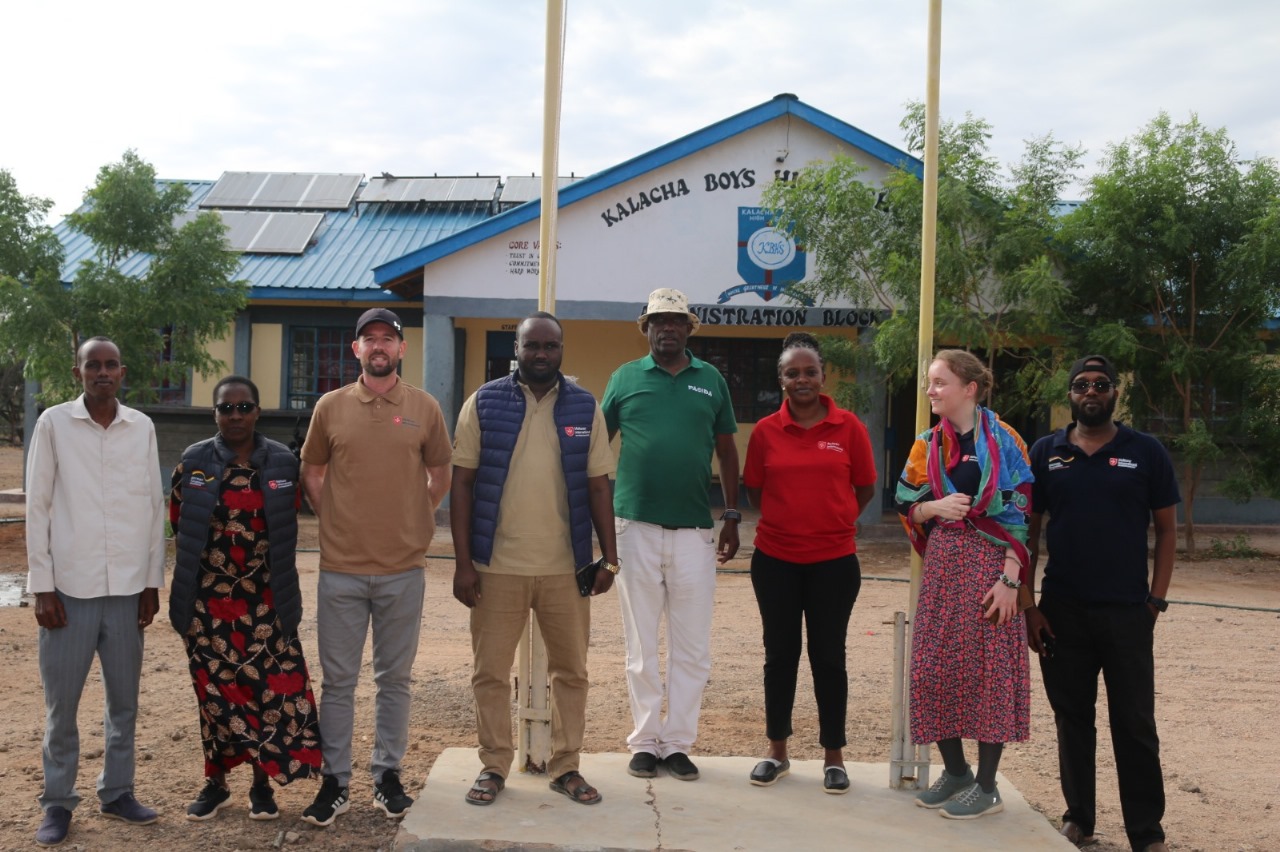When drought swept across Marsabit County in 2022, the toll was catastrophic. In the villages of Antut and Qoloba in Moyale Sub-county, entire livestock herds were wiped out, leaving many households with no source of food or income. Children, the elderly, pregnant, and lactating women were most at risk of malnutrition. As desperation grew, so did the tension between the Borana and Gabra communities. The two communities have a history of inter-communal conflict where they raid each other’s manyatta and get away with livestock. Amid the despair, a restocking initiative brought a glimmer of recovery. To stabilize pastoralist livelihoods and support peaceful coexistence, Welthungerhilfe (WHH) through SRAPLEA 2 project and with funding support from the German Federal Ministry for Economic Cooperation and Development (BMZ), supported PACIDA to distribute small livestock specifically, drought-resistant hybrid goats to affected households. “Restocking was selected…
Kurfa Umuro Katelo, a 35-year-old resident of Malabot Centre in Marsabit County, lives with her family of five Chari village, North Horr, Marsabit County. This is a village that borne the brunt of the vagaries of climate change: from cycles of prolonged drought to devastating floods, Kurfa knows all too well. Between the month of May and June, Chari village saw the most devastating floods in recent history. Kurfa’s traditional house was totally destroyed. She watched helplessly as her belongings, including utensils and water containers, were swept away. Worse still, the floods claimed a significant number of her livestock kept just after her family had relocated the animals for grazing. “More than half of our livestock were swept away, only a few were rescued. This really broke every fighting spirit that we had since we were just starting to rebuild…
As part of his introductory visit to PACIDA and Malteser International (MI) projects, the newly appointed MI Country Director, Manuel Lackmaier, was joined by PACIDA’s Chief Executive Officer, Mr. Patrick Katelo, and the joint MI/PACIDA team for a field mission to Illeret. The team oversaw the distribution of emergency food aid during the third and fourth cycles, reaching 200 of the most vulnerable households. Each household received maize flour, cooking oil, salt, beans and maize. Manuel Lackmaier appreciated the ongoing partnership between the community and PACIDA which started in 2011. Katelo called on the community to continue maintaining peace between the Dasaanach and Gabras for development purposes in the area highlighting the peace accord signed weeks ago between the two communities. The team visited the Kutur model farm in Kalacha, Marsabit County. The farm empowers local pastoralists on good management…
After five consecutive failed rainy seasons, Kenya experienced heavy rains that brought devastating floods between October and December 2023. Damage to agriculture, livestock, and disruption of infrastructure increased food insecurity in affected counties which, according to the latest Integrate Phase Classification analysis, was already estimated to affect 2.8 million people in the ASAL regions. Out of those facing high levels of Acute Food Insecurity 2.3 million are classified in IPC Phase 3 - Crisis and nearly 500,000 are classified in IPC Phase 4 – Emergency. The situation has forced households to adopt various coping mechanisms as a mitigation measure for the food shortages. Limiting portion size at mealtimes, reducing the number of meals eaten in a day, and purchasing food items on credit were the most common coping mechanisms reported. Margaret is a 42-year-old mother of six and a hardworking…
Position: Project Officer – Natural Resource Management (2 positions) Job Location: PACIDA Marsabit / Samburu Office Anticipated Start Date: Immediately Duration: One year with possibility of extension [pdf-embedder url="http://pacida.org/wp-content/uploads/2024/04/PACIDA-NRM-Agroecology-Officer.pdf"] Download Document Here
Position: Water Engineer (2 positions) Job Location: PACIDA Marsabit / Samburu Office Anticipated Start Date: Immediately Duration: One year with possibility of extension [pdf-embedder url="http://pacida.org/wp-content/uploads/2024/04/PACIDA-WATER-ENGINEER-OPPORTUNITY.pdf"] Download Document Here
PRE-QUALIFICATION QUESTIONAIRE FINAL 2024-25 [pdf-embedder url="http://pacida.org/wp-content/uploads/2024/02/Pre-qualification-Questionnaire-Final-2024-25.pdf"] Download Document Here
PACIDA - SWASAP - RO PLANT AND ASSOCIATED WORKS [pdf-embedder url="http://pacida.org/wp-content/uploads/2023/07/TENDER_SUPPLY-AND-INSTALLATION-OF-PLANT-AND-EQUIPMENT_3.pdf" title="TENDER_SUPPLY AND INSTALLATION OF PLANT AND EQUIPMENT_3"] Download Document Here
Cash Transfer-Bridging the food gap Kame Mamo Dido, is a 32-year-old widow and a mother of 5 children. Her youngest child is barely 9 months old. She comes from Bubisa ward and she is a beneficiary of the unconditional cash transfer supported by CBM. Kame was chosen by the community as she is partially deaf and has her safety net negatively affected by the drought. In recent years, she has been living harmoniously with her in-laws who have always been supporting her and her children after the death of her husband. They have been rearing goats and diligently sharing the proceeds from the sale to sustain their livelihoods. They have been living as neighbours and looking after each other’s welfare.They formed this cooperation to mitigate social and economic risks. Due to the prolonged drought, their goats have largely perished due…
Thomas Edison, the great innovator behind the bulb, said: There’s a way to do it better. Find it! In its work with communities, PACIDA knew there had to be a better way to manage water usage. In a bid to improve water access through improved management practices, the Strengthening Community Resilience in Marsabit County (SCRMC), PACIDA received support from the Food for the Hungry Kenya (FH Kenya) with funding from USAID/OFDA introduced the first ever pre-paid communal water system in Marsabit County. The organisation identified four areas to benefit from this project: Shauri Yako and Saku in Marsabit Town. To date, two water kiosks have been installed with the pre-paid meters and the Kiosk at Saku is operational. This is how the technology works: 1. Every household in the targeted region is issued with a token (a small-chip powered gadget)…





